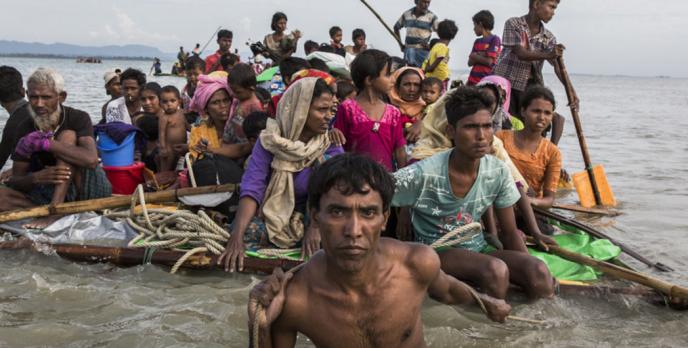Opinion: My privilege has given me opportunities. It’s time to use that privilege

Author: Mohammed Ali
I look at myself: I am a British Asian male and have had access to a decent education in the United Kingdom. I was able to further my career in the aid sector due to understanding the buzzwords, which gave me an understanding of the aid business. Access to that information gave me a head start.
I look back at my first job as a project officer for an NGO in post-conflict Liberia and wonder why that was an international position and how I did not spot that I had huge privilege to start my career with that job. I look back and think, “What was I like?” I was a do-gooder who committed microaggressions all the time.
I remember running to a trade shop in Liberia because I had an “emergency” — I can’t even remember what the issue was, but I was focused on fixing it, as if it were the most important thing in the world. I left the shop with someone who I thought was the tradesperson, went back to the office so the person could help fix the emergency, only to then find out the person was a customer and didn’t work in the shop! On so many levels, what was I doing?
As an aid consultant for over a decade, I have made a career out of people thinking they need to fly me in. Have I really uplifted local experts as much as I should have? No. I tried to make myself indispensable, with the idea that “you must hire me because you can’t find the expertise locally.”
"A clear message from 2020 has been that we must translate anti-racism into action. And those who take action will face many people with white fragility."
I used to justify this to myself by saying: “Well, at least I wasn’t writing 100-page manuals. I was running learner-centered workshops and facilitating change.” I think I was, but was I really being anti-racist?
When I was traveling, I met people whom I would call “real aid sector specialists.” They had been collecting data or conducting monitoring for a decade or more, and that is all they did — with no real career path — as they were based in Aweil, South Sudan, or in Maiduguri, northern Nigeria. I met mothers who were community health workers and also raising their children — women whom we both superhumanize and dehumanize in our aid narrative. How much power do they carry in the sector, compared with my own?
But at the same time, as a first-generation migrant, I have experienced segregationist-assimilationist tension in my life. The tension was at times overwhelming to navigate. I grew up in inner-city Birmingham, England, where racial discrimination and violence were common. My family was poor, and money was often the topic of conversation in our household.
I had numerous cultural shocks in my life, and grew up in an area of the U.K. where I could have easily been sent down the wrong track and ended up in prison or even worse. I carry some of those shocks as shame — and that affects how I act and react to racism.
I know organizations have treated me differently, compared with my white counterparts, from how they handled contract negotiations, to pay and benefits. I learned to fight my corner, but this takes more energy and risks me being labeled “that person” who is known for causing trouble. If I need to tone myself, it’s not the organization for me.
My color has also led to numerous microaggressions — also called racist abuse — and bias — also called oppression — that stick with me: being talked down to by those with more privilege than I have and also those who are more alpha than I am. I won’t go into specifics. Yes, I have anger, and it’s hard to be empathetic.
But I really try to be empathetic to those with white privilege. I hope those who work with me see this empathy. However, I am reminded daily that I am thinking about anti-racism in aid much more than the average senior leader. And I have to stop assuming everyone already has done some basic anti-racism reading.
A clear message from 2020 has been that we must translate anti-racism into action. And those who take action will face many people with white fragility. I use my privilege by supporting people and agencies to do the work that we otherwise should have already accomplished in the sector.
I won’t offer you advice, as everyone has their own journey to take, but will ask that you reflect on some questions. This journey is for anyone who carries privilege in the sector — meaning most likely all of us reading and using Devex. Here’s some questions for you to answer:
1. Are you willing to put aside time and energy to do the work of being anti-racist?
2. What have you read, and how has this changed your thoughts and behavior?
3. How has your privilege positively benefited you?
4. How has the lack of some privilege negatively affected you or others in the aid sector?
5. What practical actions are you going to take to improve the differences in power, privilege, and decision-making?

